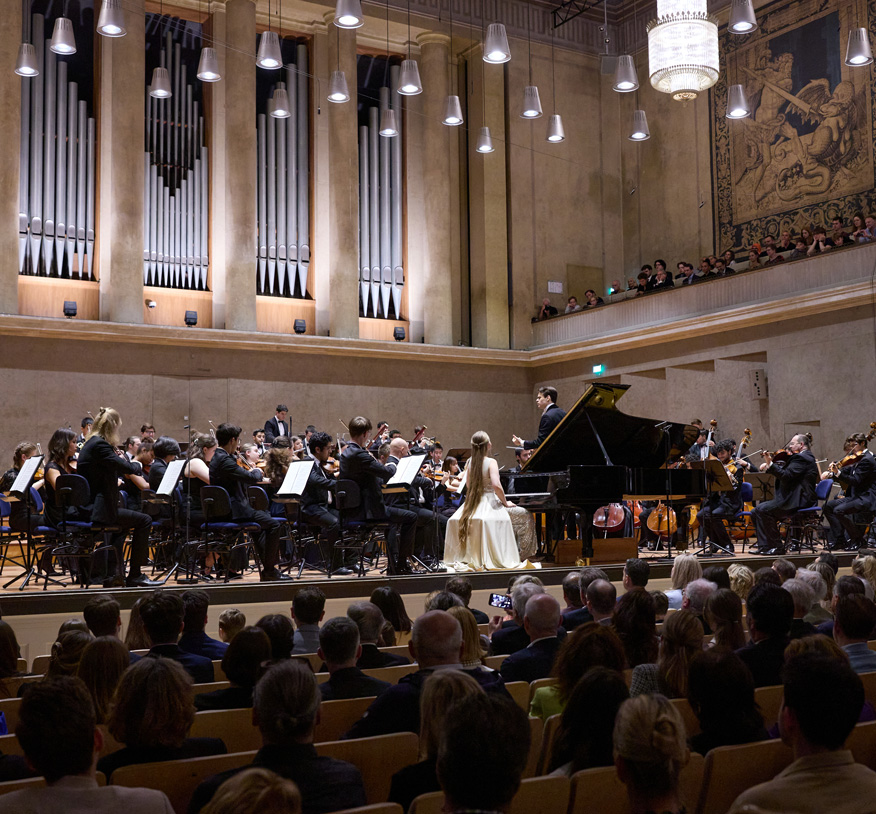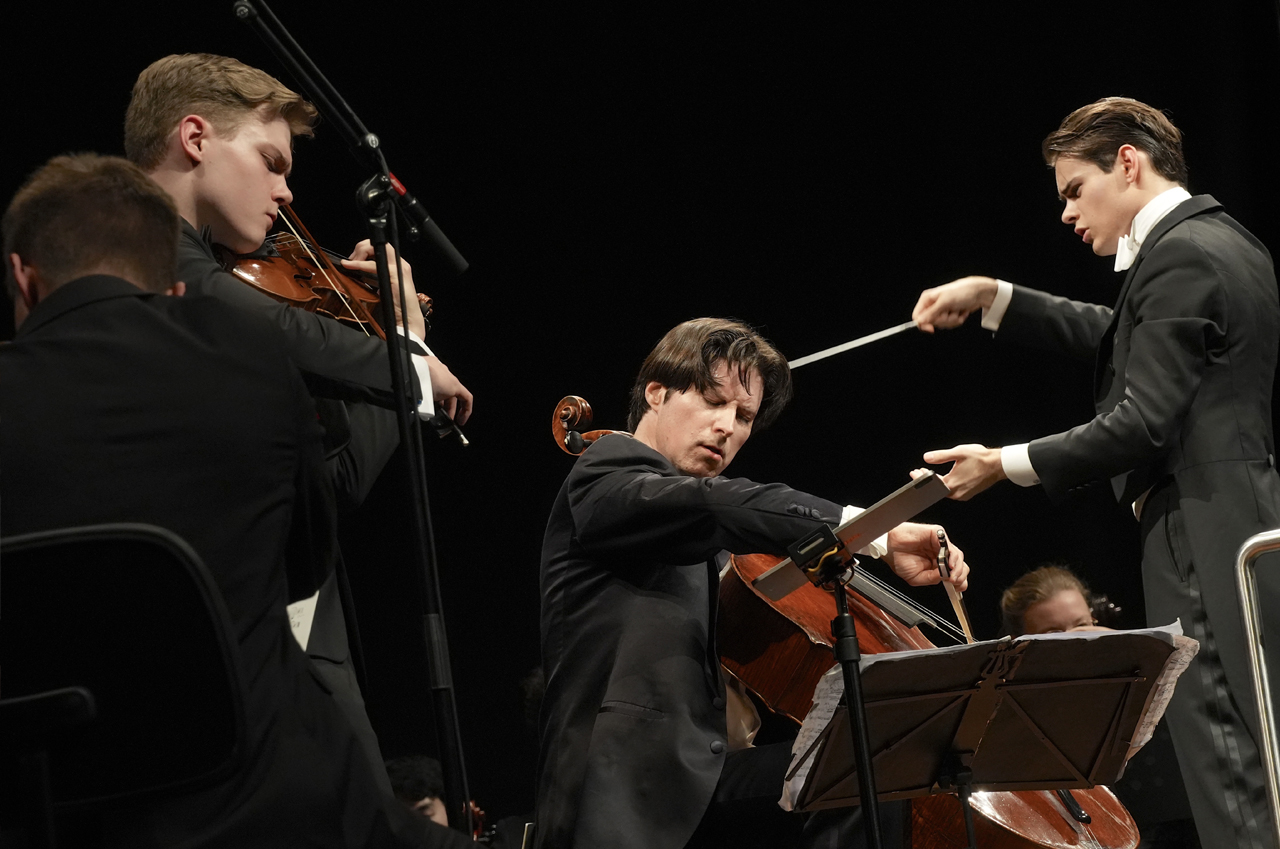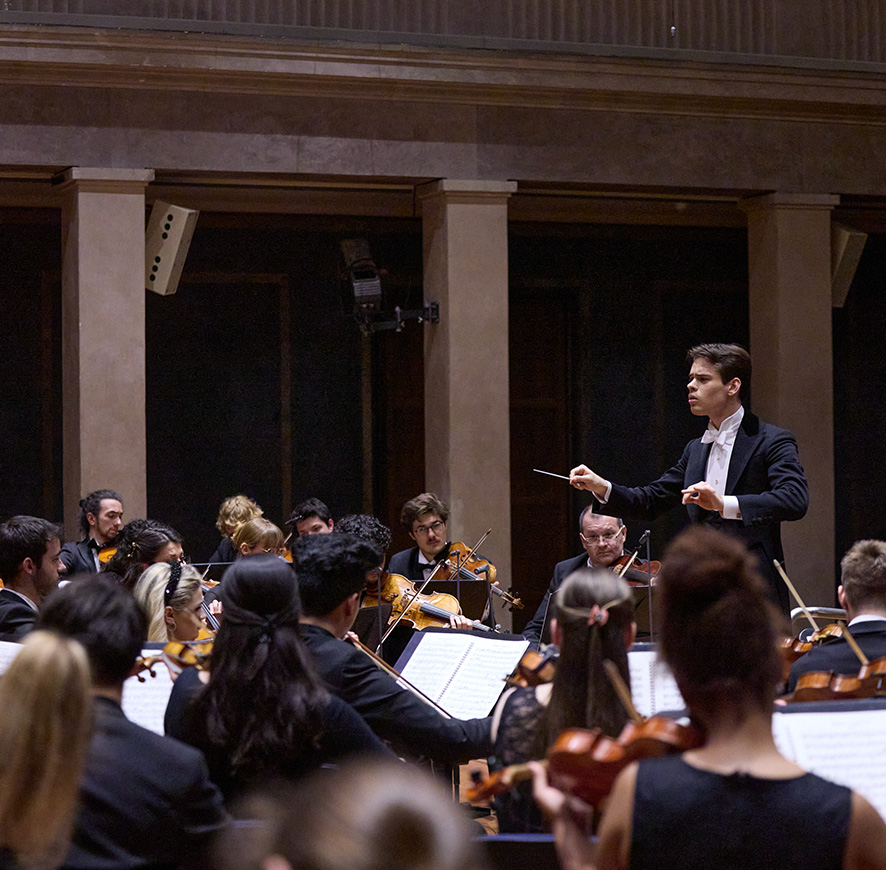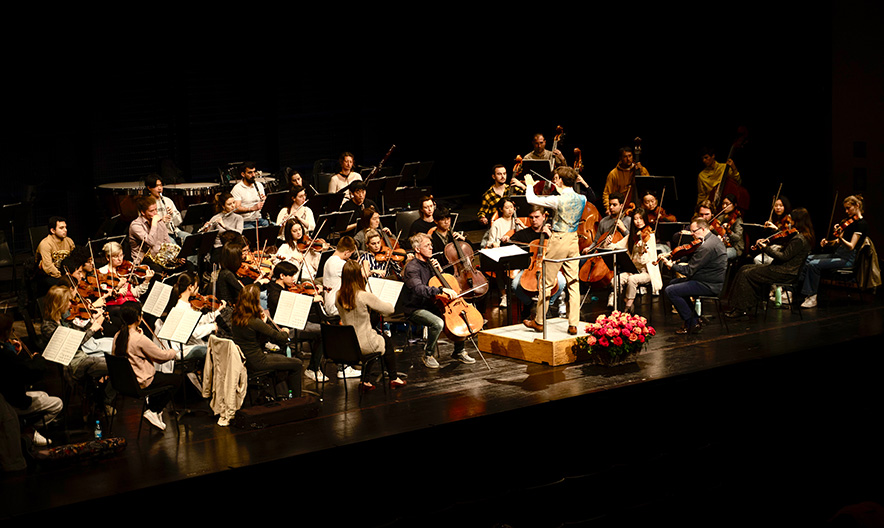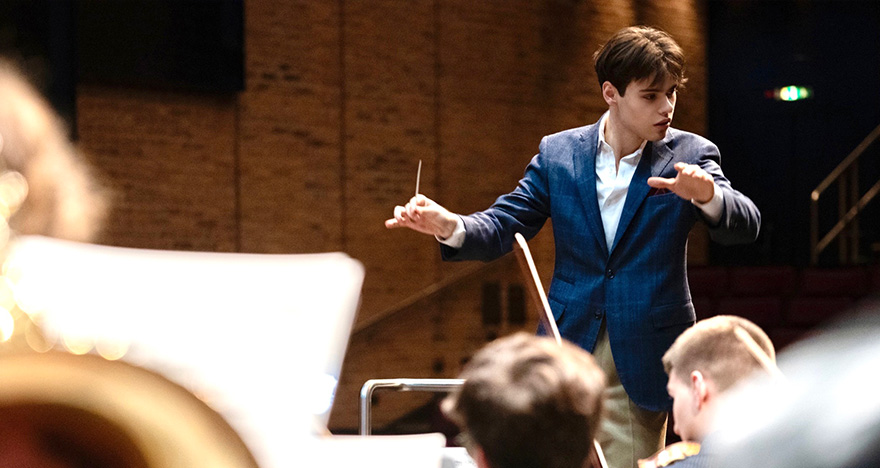JPOM History
The Young Philharmonic Orchestra Munich was founded by Maximilian Haberstock, a 21-year-old conductor from Munich.
The foundations for this orchestra were laid in 2019 when Haberstock founded the „Arcis Chamber Orchestra.“ He conducted this ensemble in two benefit concerts, with all proceeds going to Zeltschule e.V. for the education of 80 refugee children.
The expansion of this ensemble into a fully-fledged philharmonic orchestra (from 24 to 52 musicians) was made possible in 2023 by the addition of outstanding players from the University of Music & Performing Arts Munich, Verbier Festival Junior Orchestra, and Mahler Student Festival Orchestra.
The debut concert of the Young Philharmonic Orchestra Munich took place as part of the Stars & Rising Stars Festival in May 2023 under Haberstock‘s direction in the Carl-Orff-Saal, Gasteig, with the celebrated cellist Alban Gerhardt. The concert was a great success.
The second concert with Haberstock followed in May 2024 — this time with 66 musicians in the orchestra and the world-famous cellist Daniel Müller-Schott. This performance was met with great enthusiasm and praise from both the audience and the press.
In May 2025, Haberstock led his orchestra on a widely praised concert tour, joined by pianist Eva Gevorgyan, with performances at the Great Hall of the Mozarteum in Salzburg and the Herkulessaal in Munich. The all-Beethoven program captivated audiences at both sold-out venues and was rewarded with standing ovations.
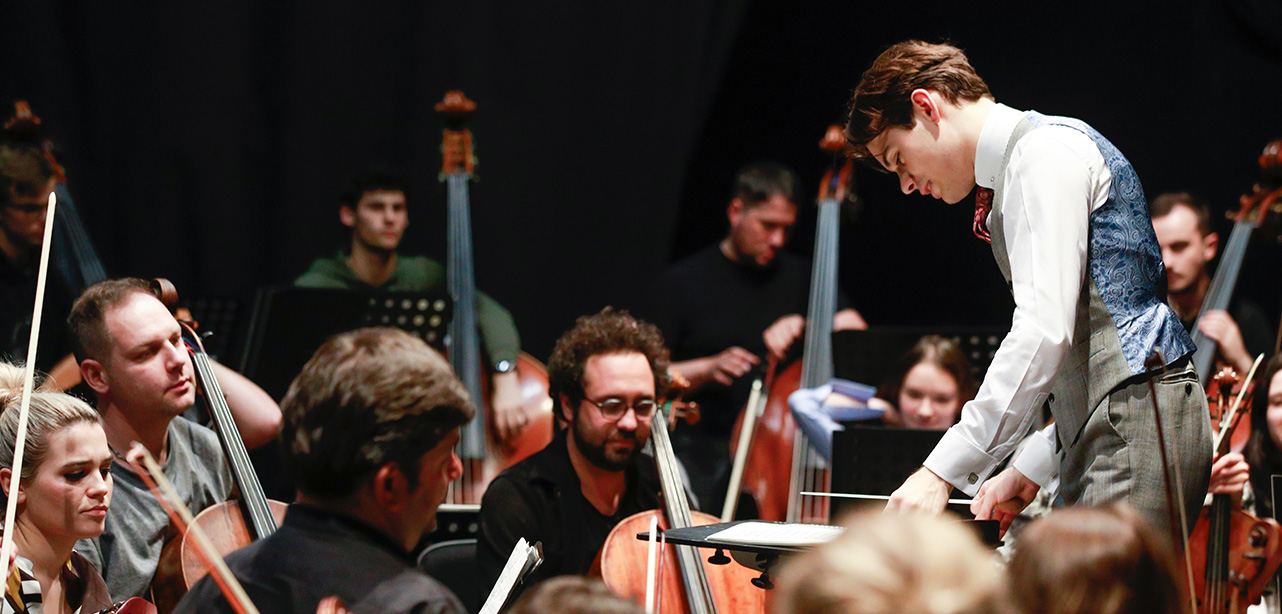
BACKGROUND NATIONALITIES OF THE MUSICIANS
- University of Music & Performing Arts Munich
- Verbier Festival Academy and Orchestra
- Mahler Festival Student Orchestra
- Orchestra academies (a.o. Royal Concertgebouw Orchestra, Berlin Philharmonic Orchestra, Bavarian Radio Symphony Orchestra)
24 Nationalities
Austria, Belgium, China, France, Germany, Greece, Israel, Italy, Japan, Macedonia, Netherlands, Norway, Palestine, Poland, Portugal, Russia, Serbia, Slovakia, South Korea, Spain, Switzerland, Turkey, Ukraine, USA
Vision of the Orchestra
In einer Zeit tiefgreifender gesellschaftlicher Umwälzungen, in der technologische Beschleunigung, globale Vernetzung und wirtschaftlicher Druck mit Überforderung, Sinnsuche und kultureller Entfremdung kollidieren, versteht sich das JPOM als bewusster Gegenpol – als kultureller Leuchtturm und lebendiger Ort humanistischer Werte und europäischer Kulturentwicklung. Als klassisches Orchester verkörpert es das Idealbild einer Gesellschaft, bei dem jeder Mitwirkende in einer Kombination aus persönlichem und gemeinschaftlichem Agieren, im Wechsel der Wirkungsfelder und klarer Führungsrichtlinie einem gemeinsamen großen Ganzen stetig entgegenstrebt.
In klassischen Konzertformen, basierend auf der reichen Entwicklung der europäischen und deutschen Kunst- und Kulturgeschichte, soll diese einzigartige Tradition nicht oberflächlich kopiert, sondern bewusst gelebt, bewahrt, in unsere Zeit übersetzt, erfrischend weitergeführt und ausgeformt werden - als erfahrbaren Raum des Erhabenen jenseits des Eventbetriebs und oberflächlicher Unterhaltung. In diesem Geiste lädt es all jene ein, die sich als Mitgestalter eines kulturellen Aufbruchs verstehen, um gemeinsam einen Ort zu schaffen, der über die Musik hinaus zum Zentrum kultureller Begegnung und geistiger Tiefe wird.
Special Characteristics of the Orchestra
- Founder and Chief Conductor: Maximilian Haberstock
- Origin of the musicians both from Munich and the international music world
- Focus on the Classical and Romantic repertoire (of the 19th century)
- A deep connection with the German sound tradition, providing an excellent basis for the young international musicians to familiarize themselves with this tradition and to make their mark in it
- Current size: 70 musicians with constant expansion
- High artistic quality through extensive rehearsal work and shaping of content
- Special community spirit and artistic camaraderie among the musicians
Future of the Orchestra
- Symphonic concerts & concert tours (3-4 per Season)
- Founding of a choir
- Concert opera productions (possibly also fully staged productions in the future)
- Music films of orchestral concerts
- Digital productions (possible founding of a record label in the future)
- Initiatives to introduce young people to classical music (e.g. by inviting them to rehearsals and explaining the program with stories, workshops, etc.)
- Artistic presence at the highest international level
